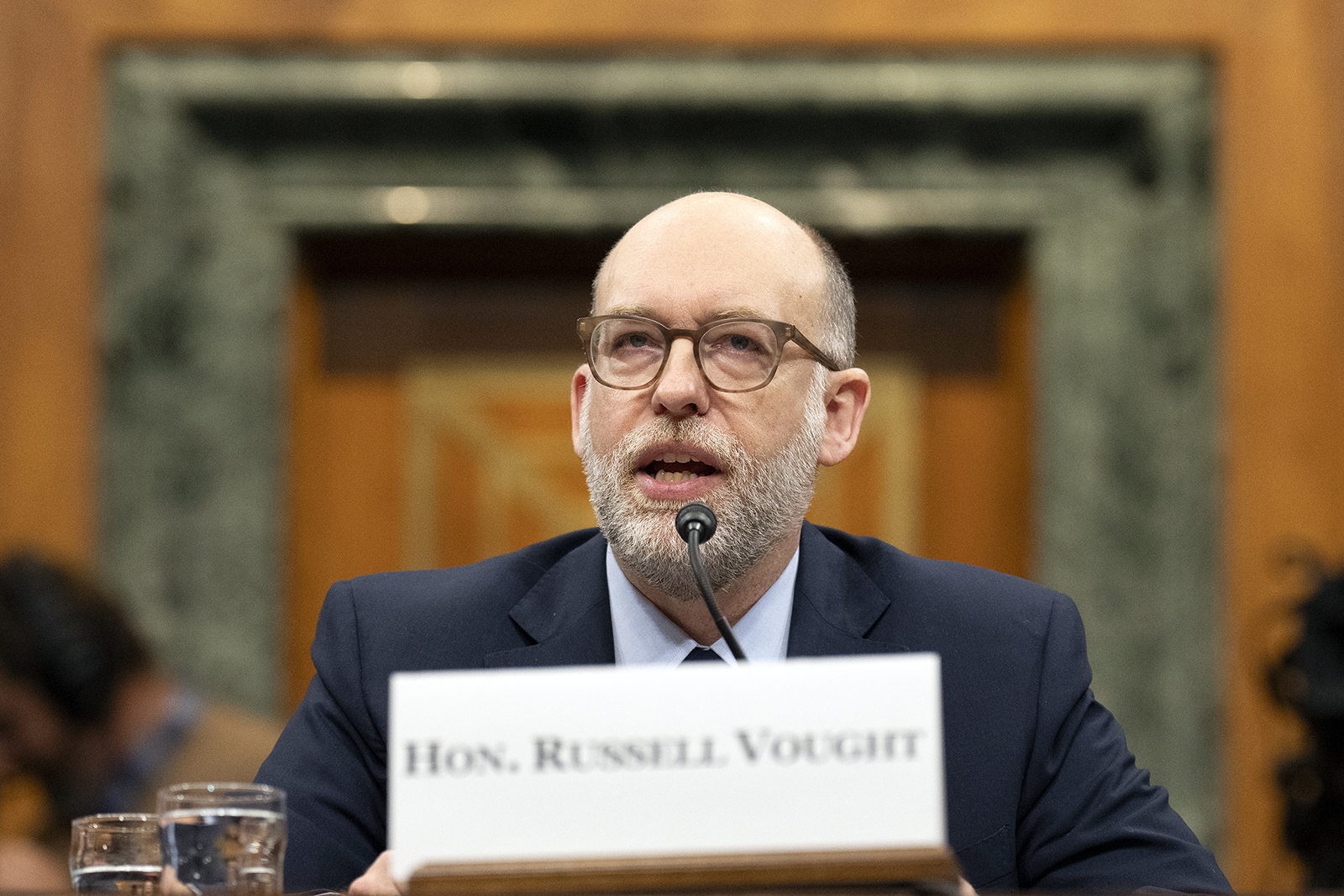
(RNS) — Despite Wheaton College’s attempts to quiet a backlash from alumni over its pro forma congratulatory message recognizing alumnus and newly confirmed White House official Russell Vought, the actions of the “deliberately non-partisan” evangelical Christian school have only brought more controversy.
After Wheaton posted its Feb. 7 statement asking for prayers for Vought, alumni and others answered on social media, objecting to Vought’s work as an architect of Project 2025, the proposed agenda for a second Trump administration, and as a past and current White House director of the Office of Management and Budget. Wheaton soon withdrew its statement, saying the flap had rendered its congratulations more political than it intended.
On Feb. 10, an open letter signed by hundreds of alumni appeared, calling Vought’s positions “antithetical to Christian charity.” The signers, including alumni who are on the faculty at New York University and Baylor University, agreed to “publicly distance” themselves from Vought’s work and “reaffirm our commitment to the Gospel’s radical call to justice, mercy, and humility.”
On Monday (Feb. 17), a second alumni letter appeared, accusing the college of stifling conservative viewpoints, capitulating to “the spirit of our age” and upholding a “DEI regime.” It concludes with a list of demands, including that the college audit “every single faculty and staff member’s commitment to the Statement of Faith and Community Covenant.”
While the clash of alumni can’t be tidily summarized as a division between progressives and conservatives — plenty of conservative Christians oppose recent actions by the Trump administration — the dueling Wheaton letters mirror a larger clash between the Christian values invoked by President Donald Trump’s Cabinet members and those of religious groups at odds with the administration’s humanitarian aid freeze, halting of the U.S. refugee program and decision to permit law enforcement officials to raid houses of worship in search of migrants.
The competing letters also expose the larger fault lines in evangelical Christianity. While earlier dustups at U.S. Christian colleges pointed to a growing rift over culture war disputes, the incident at Wheaton, one of the most influential Christian colleges in the nation, drew defenses of Vought and Trump from the likes of Franklin Graham, the head of Samaritan’s Purse whose father, Billy Graham, attended the school, and evangelical radio host Eric Metaxas.
Graham pronounced himself “shocked” when, hours after Wheaton’s congratulatory Feb. 7 post, alumni — whom Graham dismissed as “leftist Trump-haters” — answered with a flurry of comments claiming that Vought contradicts the Christian values the school promotes.
“The work that he is doing negatively and directly impacts countless other Wheaton alum who are seeking to be the hands and feet of Jesus in this country and around the rest of the world,” one commenter wrote. Several condemned Vought for backing the freezing of foreign aid and shutting down the Consumer Financial Protection Bureau, which protects consumers from predatory practices.
A day after sharing the post, Wheaton deleted it, saying: “It was not our intention to embroil the College in a political discussion or dispute.” Later, it released a statement calling the comments on the post “primarily incendiary” and “unchristian,” and clarifying that the deletion of the initial post was “in no way an apology for having expressed congratulations or for suggesting prayer for our alumnus.”
Wheaton did not provide new information in response to questions from RNS.
Wheaton’s pivot, however, only further ensnared the school in debate. The second letter, which has been signed by more than 740 students and alumni and 270 other stakeholders, does not name Vought or Project 2025 explicitly, but criticizes Wheaton, which its says “has repeatedly capitulated to the spirit of our age—placating bad actors while sidelining those who bear a more faithful witness.”
It goes on to accuse Wheaton of “mission drift,” citing “the relentless centering of race and the elevation of voices who promote unbiblical pedagogies, like critical theory,” and “the general tendency to stifle those who bring conservative viewpoints.” It also says the school has appropriated “LGBT terminology and identities.”
In 2019, Wheaton’s board approved a commitment to “Christ-Centered Diversity,” which included pledges to recruit students and employees from underrepresented groups. Last year, the school restricted employees’ ability to designate personal pronouns, including “they/them” pronouns, though the policy did not apply to students.
The second letter also points to a growing acceptance rate at Wheaton, which the writers claim jumped from 66% in 2012 to 88% in 2024, saying it is eroding the college’s standards.
“Wheaton is a symbol,” Eric Teetsel, a Wheaton alumnus who replaced Vought as the head of the Center for Renewing America, told The New Yorker. “It’s bigger than just an institution. It is, and has been, the banner of evangelical higher education … Even people who didn’t go there recognize that if a place like Wheaton can succumb to the same story that Harvard University and Princeton University and Yale and so many other schools that started with an explicitly faith-based mission and succumb to the world—if that can happen at Wheaton, we’ve lost something bigger than just Wheaton.”
John Hawthorne, a retired sociologist who studies religion, politics and higher education and is author of “The Fearless Christian University,” said Wheaton’s difficult week reminds him of the 2021 clash at Grove City College, another Christian school whose faculty, students and alumni debated in a series of open letters whether the school had succumbed to “mission drift” from its traditional values.
Such conflicts, Hawthorne told RNS, will be unavoidable for many Christian colleges, especially given the disparate responses to Trump’s executive actions and the vulnerability and volatility of the social media age.
“An institution that hasn’t thought about how to position itself with confidence is going to be reactionary all the time. … As this illustrates, there’s no way you can please all the constituents,” said Hawthorne. “It’s better for the university to be able to speak to (their) values than for various constituent groups to call them out, telling them what their values ought to be.”
